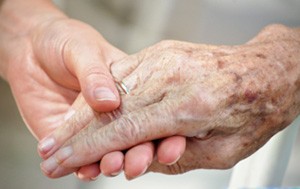Parkinson’s disease affects the nerve cells in the brain that produce dopamine. Symptoms include muscle rigidity or tremors and changes in speech and gait. Treatments can help relieve symptoms though there is no cure.
Parkinson’s disease is a movement disorder that progresses slowly. People will first notice a sense of weakness or difficulty in walking and stiff muscles but others may notice a tremor of the head or hands. This disease is a progressive disorder and the symptoms gradually worsen. Basically this disease is a progressive disorder of the nervous system that affects your movement. Gradually it develops and sometimes starting with a barely noticeable tremor in just one hand. However, while a tremor may be the most well-known sign of Parkinson's disease, disorder also commonly causes stiffness or slowing of movement.
According to our research, in the early stages of Parkinson's disease, patient’s face may show little or no expression or his/her arms may not swing when you walk. His or her speech may become soft or slurred. The disease symptoms worsen as your condition progresses over time. Our team of researchers notices that although Parkinson's disease can't be cured, extensive medications may markedly improve your symptoms. But sometimes, your doctor may suggest surgery to regulate certain regions of your brain and improve your symptoms.
As a result of our research at www.newspsychology.com it is found that Parkinson's disease symptoms and signs may vary from person to person. At first signs may be mild and may go unnoticed. Often symptoms begin on one side of your body and usually remain worse on that side, even after symptoms begin to affect both sides.
Parkinson's signs and symptoms may include- slowed movement, rigid muscles, Tremor, Loss of automatic movements..
